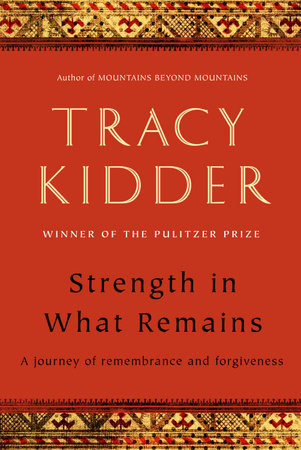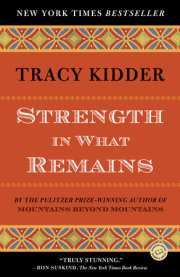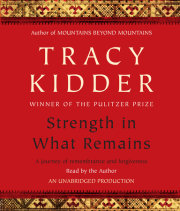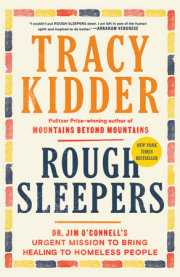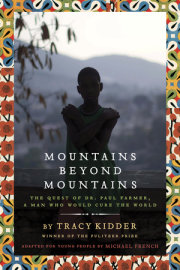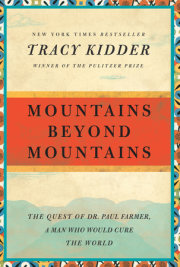Part One, Flights
Chapter One
Bujumbura-NewYork, May 1994
On the outskirts of the capital, Bujumbura, there is a small international airport. It has a modern terminal with intricate roofs and domed metal structures that resemble astronomical observatories. It is the kind of terminal that seems designed to say that here you leave the past behind, the future has arrived, behold the wonders of aviation. But in Burundi in 1994, for the lucky few with tickets, an airplane was just the fastest, safest way out. It was flight.
In the spring of that year, violence and chaos governed Burundi. To the west, the hills above Bujumbura were burning. Smoke seemed to be pouring off the hills, as the winds of mid-May carried the plumes of smoke downward in undulating sheets, in the general direction of the airport. A large passenger jet was parked on the tarmac, and a disordered crowd was heading toward it in sweaty haste. Deo felt as if he were being carried by the crowd, immersed in an unfamiliar river. The faces around him were mostly white, and though many were black or brown, there was no one whom he recognized, and so far as he could tell there were no country people. As a little boy, he had crouched behind rocks or under trees the first times he'd seen airplanes passing overhead. He had never been so close to a plane before. Except for buildings in the capital, this was the largest man-made thing he'd ever seen. He mounted the staircase quickly. Only when he had entered the plane did he let himself look back, staring from inside the doorway as if from a hiding place again. In Deo's mind, there was danger everywhere. If his heightened sense of drama was an inborn trait, it had certainly been nourished. For months every situation had in fact been dangerous. Climbing the stairs a moment before, he had imagined a voice in his head telling him not to leave. But now he stared at the hills and he imagined that everything in Burundi was burning. Burundi had become hell. He finally turned away, and stepped inside. In front of him were cushioned chairs with clean white cloths draped over their backs, chairs in perfect rows with little windows on the ends. This was the most nicely appointed room he'd ever seen. It looked like paradise compared to everything outside. If it was real, it couldn't last.
The plane was packed, but he felt entirely alone. He had a seat by a window. Something told him not to look out, and something told him to look. He did both. His hands were shaking. He felt he was about to vomit. Everyone had heard stories of planes being shot down, not only the Rwandan president's plane back in April but others as well. He was waiting for this to happen after the plane took off. For several long minutes, whenever he glanced out the window all he saw was smoke. When the air cleared and he could see the landscape below, he realized that they must already have crossed the Akanyaru River, which meant they had left Burundi and were now above Rwanda. He had crossed a lot of the land down there on foot. It wasn't all that small. To see it transformed into a tiny piece of time and space-this could only happen in a dream.
He gazed down, face pressed against the windowpane. Plumes of smoke were also rising from the ground of what he took to be Rwanda-if anything, more smoke than around Bujumbura. A lot of it was coming from the banks of muddy-looking rivers. He thought, "People are being slaughtered down there." But those sights didn't last long. When he realized he wasn't seeing smoke anymore, he took his face away from the window and felt himself begin to relax, a long-forgotten feeling.
He liked the cushioned chair. He liked the sensation of flight. How wonderful to travel in an easy chair instead of on foot. He began to realize how constricted his intestines and stomach had felt, as if wound into knots for months on end, as the tightness seeped away. Maybe the worst was over now, or maybe he was just in shock. "I don't really know where I'm going," he thought. But if there was to be no end to this trip, that would be all right. A memory from world history class surfaced. Maybe he was like that man who got lost and discovered America. He craned his neck and looked upward through the window. There was nothing but darkening blue. He looked down and realized just how high above the ground he was seated. "Imagine if this plane crashes," he thought. "That would be awful." Then he said to himself, "I don't care. It would be a good death."
For the moment, he was content with that thought, and with everything around him. The only slightly troubling thing was the absence of French in the cabin. He knew for a fact-he'd been taught it was so since elementary school-that French was the universal language, and universal because it was the best of all languages. He knew Russians owned this plane. Only Aeroflot, he'd been told, was still offering commercial flights from Bujumbura. So it wasn't strange that all the signs in the cabin were in a foreign script. But he couldn't find a single word written in French, even on the various cards in the seat pocket.
The plane landed in Entebbe, in Uganda. As he waited in the terminal for his next flight, Deo watched what looked like a big family make a fuss over a young man about his age, a fellow passenger as it turned out. When the flight started to board, the whole bunch around this boy began weeping and wailing. The young man was wiping tears from his eyes as he walked toward the plane. Probably he was just going away on a trip. Probably he would be coming back soon. In his mind, Deo spoke to the young man: "You are in tears. For what? Here you have this huge crowd of family." He felt surprised, as if by a distant memory, that there were, after all, many small reasons for people to cry. His own mind kept moving from one extreme to another. Everything was a crisis, and nothing that wasn't a crisis mattered. He thought that if he were as lucky as that boy and still had that much family left, he wouldn't be crying. For that matter, be wouldn't be boarding airplanes, leaving his country behind.
Deo had grown up barefoot in Burundi, but for a peasant boy he had done well. He was twenty-four. Until recently he had been a medical student, for three years at or near the top of his class. In his old faux-leather suitcase, which he had reluctantly turned over to the baggage handler in the airport in Bujumbura, he had packed some of the evidence of his success: the French dictionary that elementary school teachers gave only to prized students, and the general clinical text and one of the stethoscopes that he had saved up to buy. But he had spent the past six months on the run, first from the eruption of violence in Burundi, then from the slaughter in Rwanda.
In geography class in school, Deo had learned that the most important parts of the world were France and Burundi's colonial master, Belgium. When someone he knew, usually a priest, was going abroad, that person was said to be going to "Iburaya." And while this usually meant Belgium or France, it could also mean any place that was far away and hard to imagine. Deo was heading for Iburaya. In this case, that meant New York City.
He had one wealthy friend who had seen more of the world than East Central Africa, a fellow medical student named Jean. And it was Jean who had decided that New York was where he should go. Deo was traveling on a commercial visa. Jean's French father had written a letter identifying Deo as an employee on a mission to America. He was supposed to be going to New York to sell coffee. Deo had read up on coffee beans in case he was questioned, but he wasn't selling anything. Jean's father had also paid for the plane tickets. A fat booklet of tickets.
From Entebbe, Deo flew to Cairo, then to Moscow. He slept a lot. He would wake with a start and look around the cabin. When he realized that no one resembled anyone he knew, he would relax again. During his medical training and in his country's history, pigmentation had certainly mattered, but he wasn't troubled by the near total whiteness of the faces around him on the plane that he boarded in Moscow. White skin hadn't been a marker of danger these past months. He had heard of French soldiers behaving badly in Rwanda, and had even caught glimpses of them training militiamen in the camps, but waking up and seeing a white person in the next seat wasn't alarming. No one called him a cockroach. No one held a machete. You learned what to look out for, and after a while you learned to ignore the irrelevant. He did wonder again from time to time why he wasn't hearing people speak French.
When his flight from Moscow landed, he was half asleep. He followed the other passengers out of the plane. He thought this must be New York. The first thing to do was find his bag. But the airport terminal distracted him. It was like nothing he'd ever seen before, an indoor place of shops where everyone looked happy. And everyone was large. Compared to him anyway. He'd never been heavy, but his pants, which had fit all right six months before, were bunched up at the waist. When he looked down at himself, the end of his belt seemed as long to him as a monkey's tail. His belly was concave under his shirt. Here in Iburaya everyone's clothes looked better than his.
Copyright © 2009 by Tracy Kidder. All rights reserved. No part of this excerpt may be reproduced or reprinted without permission in writing from the publisher.

